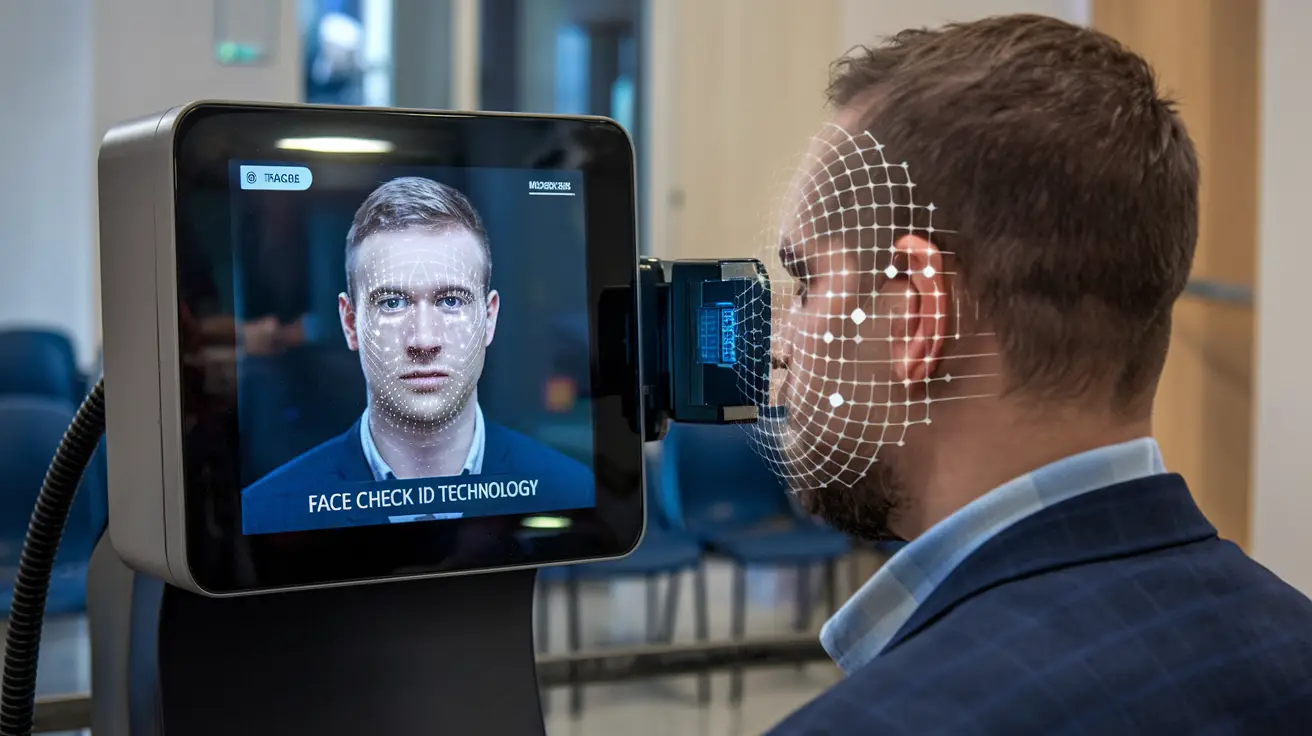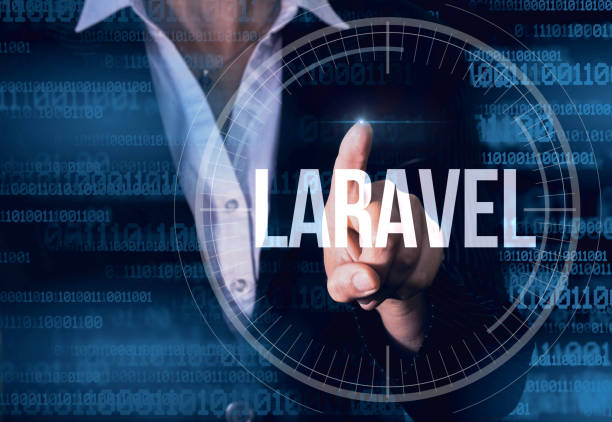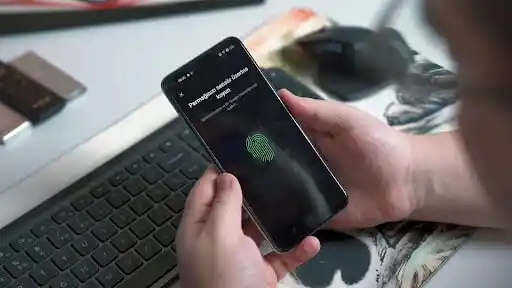Revolutionizing Travel with NFC e-Passport Verification Technology

In this ultramodern era of globalized travel, it is vitally important to ensure efficient and secure identity verification. NFC e-passport verification is a revolutionary technology that simplifies border control processes while increasing security. This system employs Near Field Communication (NFC) that allows travelers to move smoothly across borders securely and more competently than ever before. But what is an NFC-enabled passport, and what does it mean for international travel?
What does it mean when a passport has NFC?
It is a boarding card with an embedded microchip that stores individual and biometric data. This microchip holds firmly information like the traveler’s name, date of birth, nationality, and facial recognition data. Along with other biometric identities like fingerprints or iris scans. The embedded chip can be read wirelessly by NFC scanners, making it convenient for immigration and border control officials to verify a traveler’s identity.
Impact on Global Travel:
- Enhanced Security: NFC e-passports lessen the risk of passport fraud and identity theft by including advanced security features such as digital signatures and coding. This ensures that the data cannot be mitigated with or duplicated, providing a higher level of security compared to conventional passports.
- Faster Processing Times: The use of NFC technology allows for rapid scanning and verification of passports at border control points. This reduces wait times for travelers and helps to reduce obstruction at busy airports and international borders.
- Interoperability: NFC e-passports are designed to be compatible with global standards, making them usable in various countries around the world. This interoperability simplifies international travel by allowing for a consistent verification process regardless of the traveler’s destination.
- Integration with Automated Systems: Many airports have introduced automated e-gates that use NFC e-passport verification to allow travelers to pass through border controls without direct interaction with an immigration officer. This not only speeds up the process but also reduces the need for manual checks, minimizing human error.
- Improved Data Management: With digital storage of biometric data, border control agencies can maintain accurate and up-to-date records, facilitating better management of traveler information and enhancing national security measures.
What Is an NFC- Enabled Passport?
An NFC-enabled passport is a modern travel document embedded with a tiny NFC (Near Field Communication) chip that securely stores personal and biometric information, such as a digital photograph, fingerprints, and other identifying data. This innovative technology allows for swift and seamless verification when travelers pass through security or border control, significantly cutting down the time needed for identity checks.
The adoption of NFC-enabled passports has been growing steadily around the globe, as more countries recognize the benefits of this technology in enhancing both security and efficiency. Nations like Nigeria have implemented these advanced e-passports as part of their efforts to modernize and streamline their passport systems, making international travel smoother and safer for their citizens. With the growing prevalence of these passports, travelers can enjoy faster processing times and a more secure travel experience.
How NFC e-Passport Verification Works?
NFC e-passport verification uses a wireless communication protocol that facilitates seamless data transfer between the NFC chip embedded in the passport and an NFC-enabled device, such as a scanner at an airport. Here’s a simplified breakdown of how the process works:
- Scanning: The traveler places their NFC-enabled passport near a reader or scanner. This is typically at an automated e-gate or handled by an immigration officer.
- Data Transmission: The NFC chip in the passport transmits encrypted personal and biometric data to the scanning device. This data includes essential information like the traveler’s name, date of birth, and biometric identifiers (e.g., a digital photo or fingerprints).
- Verification: The transmitted data is cross-checked against a secure, centralized database. This database contains records of valid passports, helping to confirm the authenticity of the traveler’s information.
- Authentication: If the data matches and is verified as authentic, the traveler is granted entry. If discrepancies are found, further checks are conducted by immigration authorities.
The Role of NFC-Enabled Passports in Nigeria:
Nigeria’s adoption of NFC-enabled passports marks a pivotal advancement in the country’s efforts to enhance travel security and simplify immigration processes. By aligning with international standards, these passports ensure that Nigerian travelers experience fewer complications at foreign borders, facilitating a smoother and more secure travel experience.
The introduction of NFC-enabled passports in Nigeria is designed to achieve several key objectives:
Strengthen the Country’s Travel Infrastructure: The shift to NFC-enabled passports is part of a broader initiative to modernize Nigeria’s travel infrastructure. This includes upgrading passport issuance systems, implementing advanced border control technology, and ensuring that the nation’s travel framework meets global benchmarks. These improvements not only enhance efficiency but also help to position Nigeria as a leader in adopting cutting-edge travel technology in Africa.
- Alleviate Identity Theft and Document Fraud: With the integration of biometric data and encrypted information, NFC-enabled passports significantly reduce the risk of identity theft and document forgery. The robust security features make it extremely difficult for counterfeiters to produce fake passports, thereby safeguarding the identities of Nigerian citizens and bolstering the integrity of the country’s travel documents.
- Improve the Global Reputation of Nigerian Passports: By adopting internationally recognized and technologically advanced passports, Nigeria is improving the global perception of its travel documents. This enhances the credibility and trustworthiness of Nigerian passports, making it easier for citizens to gain entry into other countries and fostering better international relations. The improved reputation can also lead to more favorable visa policies and increased travel opportunities for Nigerians.
Advantages of NFC e-Passport Verification:
The adoption of NFC e-passport verification brings numerous advantages for both travelers and authorities, transforming the travel experience into a more secure and streamlined process.
- Enhanced Security: NFC chips are equipped with advanced encryption techniques that safeguard sensitive personal and biometric data. This encryption ensures that only authorized devices can access the information, significantly reducing the risk of unauthorized access or data breaches. Moreover, the biometric data stored on these chips, such as fingerprints and facial recognition, adds an extra layer of security, making it nearly impossible for someone to use a stolen or forged passport.
- Time Efficiency: One of the most noticeable benefits for travelers is the reduction in time spent at immigration checkpoints. NFC e-passport verification allows for fast, touchless scanning, which speeds up the processing time compared to traditional manual checks. This efficiency not only enhances the traveler’s experience but also helps manage the flow of passengers at busy airports, reducing congestion and wait times.
- Fraud Prevention: The secure design of NFC chips makes them extremely difficult to counterfeit. Each chip contains unique identifiers and biometric data that are hard to replicate, making it easier for authorities to detect fraudulent passports. This robust security feature plays a crucial role in preventing identity theft and ensuring that only legitimate travelers can use the document.
- Global Acceptance: NFC-enabled passports are designed to meet international standards set by organizations such as the International Civil Aviation Organization (ICAO). This compliance ensures that these passports are recognized and accepted worldwide, providing travelers with a seamless and hassle-free experience when crossing borders. The universal recognition also facilitates easier collaboration between countries in terms of security and immigration management.
Challenges in Enforcing NFC-Enabled Passports:
While NFC-enabled passports offer numerous advantages, their implementation is not without challenges. These hurdles must be addressed to ensure a smooth transition and widespread adoption.
- Infrastructure Development: One of the primary challenges is the need to upgrade infrastructure at airports, border control points, and other travel hubs to support NFC technology. This involves installing NFC-compatible scanners and systems capable of reading and processing the encrypted data stored on e-passports. For many countries, including Nigeria, this requires significant investment in technology and training for border control staff to ensure they can effectively use and manage the new systems.
- Cost: Producing NFC-enabled passports is considerably more expensive than traditional paper passports. The cost includes the price of embedding the microchip, implementing secure data storage, and upgrading production facilities. For governments, this means allocating more funds to passport issuance programs and possibly increasing fees for citizens. Balancing these costs while making the technology accessible to all is a significant challenge, particularly in countries with limited resources.
- Public Awareness: Educating the public about the benefits and proper use of NFC-enabled passports is crucial for widespread adoption. Many citizens may be unaware of how these passports work or may have concerns about privacy and data security. To ensure a smooth rollout, governments need to conduct comprehensive awareness campaigns, providing clear information on how the technology enhances security, speeds up travel processes, and protects personal data. Building public trust is essential for the successful implementation of this advanced travel document.
What Sets NFC-Enabled Passports Apart?
NFC-enabled passports stand out from traditional passports due to their embedded chips that provide real-time verification. The NFC chip securely stores encrypted data, which can only be accessed by authorized personnel, reducing the risk of unauthorized access and identity theft.
Additionally, these passports can store extra information, such as digital visas, vaccination records, and other travel documents. This feature is especially useful for frequent travelers, consolidating important details into one secure place for easy access.
The Future of NFC e-Passport Verification:
As technology continues to evolve, the potential of NFC e-passport verification is expected to expand, leading to more advanced and streamlined travel experiences. Future developments could include:
- Enhanced Biometrics: Future NFC-enabled passports may integrate advanced biometric features like iris scanning and voice recognition, making identity verification even more accurate and secure. These innovations would further reduce the chances of identity fraud and make the passport verification process faster and more reliable.
- Digital Passports: A fully digital passport that combines NFC technology with mobile applications could transform the way we travel. Imagine having your passport on your smartphone, where it can be verified with just a tap. This would make traveling even more convenient and accessible, especially for those who prefer digital solutions over physical documents.
- Expanded Data Storage: Future NFC-enabled passports could store even more information, such as travel history, hotel reservations, and health data, including vaccination records and medical history. This would simplify international travel, providing authorities with all relevant information at the point of entry while also giving travelers a more seamless experience.
Countries like Nigeria, which have already embraced NFC-enabled passports, are well-positioned to benefit from these advancements. By being early adopters, they can lead the way in adopting new features and optimizing the travel experience for their citizens.
Conclusion:
The rise of NFC e-passport verification is transfiguring how we think about travel security and efficiency. From the smooth NFC verification process to enhanced protection against fraud, this technology is reshaping worldwide mobility. As more countries adopt NFC-enabled passports, we are moving toward a future where international travel is not only sheltered but also significantly more structured. The future of travel is becoming more coupled, secure, and well organized, thanks to the continued developments in NFC technology.








